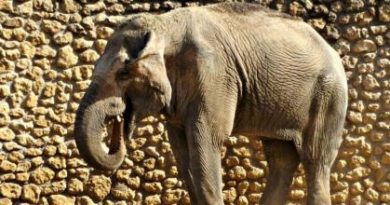Zoonotic Microsporidia in Wild Lagomorphs in Southern Spain
Abstract
Microsporidia are obligate intracellular protist-like fungal pathogens that infect a broad range of animal species, including humans. This study aimed to assess the presence of zoonotic microsporidia (Enterocytozoon bieneusi, Encephalitozoon intestinalis, Encephalitozoon hellem, and Encephalitozoon cuniculi) in organ meats of European wild rabbit (Oryctolagus cuniculus) and Iberian hare (Lepus granatensis) consumed by humans in Spain. Between July 2015 and December 2018, kidney samples from 383 wild rabbits and kidney and brain tissues from 79 Iberian hares in southern Spain were tested by species-specific PCR for the detection of microsporidia DNA. Enterocytozoon bieneusi infection was confirmed in three wild rabbits (0.8%; 95% CI: 0.0–1.7%) but not in hares (0.0%; 95% CI: 0.0–4.6%), whereas E. intestinalis DNA was found in one wild rabbit (0.3%; 95% CI: 0.0–0.8%) and three Iberian hares (3.8%; 95% CI: 0.0–8.0%). Neither E. hellem nor E. cuniculi infection were detected in the 462 (0.0%; 95% CI: 0.0–0.8%) lagomorphs analyzed. The absence of E. hellem and E. cuniculi infection suggests a low risk of zoonotic foodborne transmission from these wild lagomorph species in southern Spain. To the authors’ knowledge, this is the first report of E. intestinalis infection in wild rabbits and Iberian hares. The presence of E. bieneusi and E. intestinalis in organ meats from wild lagomorphs can be of public health concern. Additional studies are required to determine the real prevalence of these parasites in European wild rabbit and Iberian hare.




